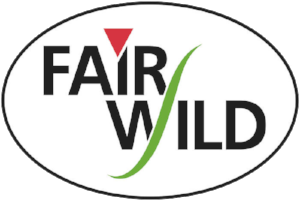FairWild champions wild sustainability at Biofach 2020
Nuremberg, Germany, 12-15th February 2020 - The FairWild Foundation exhibited at the world’s largest organic trade fair for the eighth consecutive year, showcasing the business benefits and importance of the FairWild Standard for sustainability and fair treatment of wild-collectors.
Together with our partners we talked to new businesses at all stages of wild-plant trade chains about how they could get involved with FairWild and met with current participants to build on existing relationships. FairWild exhibited in the special show for sustainability initiatives and networks, benefitting from a steady flow of visitors wanting to learn more about wild harvest issues.
The FairWild event Wild plants, wild world! brought together a panel of experts from the FairWild Board, NGOs, funding organisations and business to discuss how to protect biodiversity in a changing world and the crucial role that businesses can play. Panellists considered how wild plants are affected by the current biodiversity crisis (Anastasiya Timoshyna, TRAFFIC), how businesses can engage with global environmental challenges (Marin Anastasov, Pukka Herbs) and how companies can go beyond traditional business models and invest in their supply chain communities (Jamie Horst, Traditional Medicinals Foundation). The panel discussion was followed by a short breakout session where attendees discussed species and landscape focused projects on sustainable sourcing, as well as how businesses can get involved with FairWild.
We also participated in the BioFach Congress event Organic & Wild: a topic under the radar. Why should we care and what are the solutions? This session brought together a diverse panel of speakers from government, academia, industry, certification bodies and NGOs, as well as around 40 participants. The event discussed the rapid growth in organic wild certification areas around the world, drawing on data from the latest FiBL survey on organic agriculture worldwide. It asked the question of whether this is making a difference for the sustainability of wild species, given the increasing threats to biodiversity from overexploitation and habitat loss.
The experts (including FairWild’s Board member Elisabeth Ruëgg) observed the inadequacy of the existing organic standards to control/verify the sustainability of wild-sourcing, and discussed short-and long-term solutions. The FairWild Standard was highlighted as an example of a specialized voluntary standard, which can provide necessary assurance against the risk of potentially unsustainable wild harvest practices. The need for the better definition of what the sustainability of wild harvest means in the existing organic standards were also discussed. CITES Appendix-II listed species were introduced as those in particular need of a rigorous certification approach, and recent research which reviewed various applicable standards against CITES requirements was presented – demonstrating FairWild as an appropriate scheme to support CITES implementation.
The FairWild participation at BioFach 2020 was supported by Friends of FairWild donations, in-kind donations from licensees and partner organisations, including TRAFFIC and through connections with the UK Darwin Initiative funded project “Succeeding with CITES: Sustainable and equitable Jatamansi trade from Nepal”.

